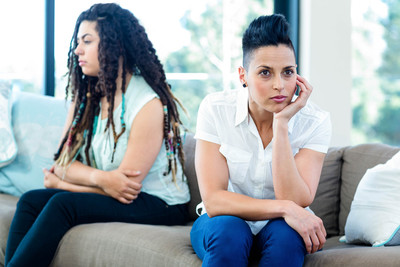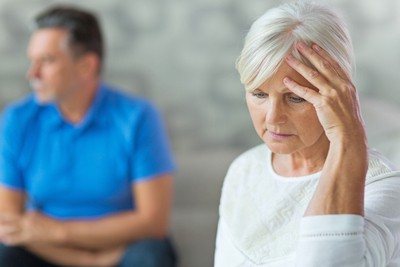Exploring Power Dynamics in Relationships with Catherine Hodes, LICSW

Earlier this year, NCCT’s Intake Coordinator, Catherine Hodes, MSW, LICSW, was published in the Clinical Social Work Journal.
Her paper, co-authored with Dr. Annelise Mennicke and titled “Is it Conflict or Abuse?”, explores the differences between conflict and abuse, and the consequences of conflating the two. In it, she discusses several different power dynamics in relationships and offers a fresh perspective on how to differentiate control and abuse from escalated conflict.
Hodes comes to NCCT with over 20 years of experience in the field of domestic and intimate partner violence. Having worked side-by-side with survivors, she provides valuable insight on the nature of abuse and conflict. Providers working with couples from diverse backgrounds can benefit from the information she offers on this topic.
Continue reading below for a brief Q&A with Catherine, in which she explains the difference between conflict and abuse and why she is so passionate about the subject.
1. Can you explain the dichotomy between conflict and abuse? Why is it so difficult to discern the difference between the two?

Having worked with survivors for many years, I became aware of how often conflict and abuse can become conflated when defining a relationship. Couples themselves will conflate the terms, as will therapists, police officers, and educators. The terms are often conflated, and this is cause for concern.
Essentially, abuse is about seizing and wielding power over another, while conflict is about struggling over power. An abusive partner will maintain power by using various coercive and threatening strategies. It’s a power-over dynamic. Conflict, on the other hand, is the struggle that can occur between two partners in their efforts to figure out how to negotiate, compromise, or share power.
Unfortunately, when these terms are conflated, conflict is seen as inherently negative when, in fact, it can be healthy and necessary. Conflict can have positive outcomes in a relationship. Yet, when we label conflict as abuse, it garners a much different response and is not seen as something that can be walked through and processed healthily. .
All couples experience conflict, and when that is unresolved or escalates, they can get locked into ongoing struggles. That doesn’t have to indicate abuse or an abusive dynamic. In fact, when an abusive dynamic is present, there may be no obvious struggle for power because it would be unsafe for the person who is the target of control.
An abusive, power-over dynamic means one person is already holding all the power, often using threats of harm and isolation to maintain control.
2. How can understanding and labeling conflict and abuse appropriately benefit a couple?
As a domestic violence and intimate partner violence advocate, I wanted to make a clear distinction in my writing between abuse and conflict and to help providers understand the differences, and respond accordingly.
If we call something abuse when it is actually, heightened conflict, we can stigmatize people in unhelpful ways. One person might be unfairly labeled an abuser, which can prompt legal and criminal responses. The person who is labeled a victim may reject support or intervention that feels intrusive or irrelevant.
One of my earliest experiences in the field was working with a young man in his 20’s who viewed himself as an abuser. He was deeply troubled by the volatile relationship he was in, but it became clear to me over time that this was not an abusive relationship. He was not maintaining power over his partner or threatening her in any harmful or coercive ways. Instead, they were experiencing a high level of unresolved conflict and lacked the skills to respond accordingly. Labeling himself as an abuser did nothing to help the situation and only caused him a great deal of despair.
Mislabeling heightened conflict as abuse can become a significant roadblock to relationship resolutions. While not all conflict can be resolved and ending a relationship can sometimes be the most appropriate action, we should still differentiate conflict from abuse.
Of course, it is damaging and unsafe when abuse is minimized, denied, or justified by being viewed merely as fights, spats, or “lover’s quarrels.” Historically abuse has been under-responded to, and victims have often felt blamed, isolated, and traumatized by the lack of appropriate response. We have come a long way in being able to assist survivors to gain greater safety and have better options. We must now also turn our attention to understanding some of the more complex relational dynamics we encounter as therapists.
3. Can you tell me a little bit about your past and what led you to the role that you have now with NCCT?

Most of my professional work has been working against domestic and intimate partner violence and sexual assault. I am currently also an adjunct professor at Smith School for Social Work and New York University Silver School of Social Work.
After recently relocating to the Pioneer Valley from Brooklyn, NY I decided to pursue work I could do while also focusing on teaching and writing. That’s when I discovered the position of Intake Coordinator at The Northampton Center For Couples Therapy.
Here, everyone works as a team and engages in dialogue around complex issues and topics surrounding relationships, such as abuse and conflict. Director Kerry Lusignan, has also been wonderful in demonstrating her interest in the work I’ve been doing, and of course, couples therapists have a vested interest in understanding differences between conflict and abuse, as they are the ones in the room with couples who have long histories and complex relationship realities.
Therapists have to be mindful all the time of the power dynamics between couples, how it impacts communication, compromise, intimacy, and the health of the relationship. For that reason, I am working with NCCT to offer a regional day-long training for providers on differentiating between conflict and abuse.
4. What resources are available to couples or individuals who want to learn more about this topic, or who are concerned they might be victims of domestic abuse?
One of the reasons I feel this topic is so important is the fact that it has not been explored in great depth. The differences are complicated and hard to see, but they are critical to explore and discuss. I hope I can provide some opportunities to do that.
Click here to read Catherine’s full paper, “Is it Conflict or Abuse?” which she co-authored with Dr. Annelise Mennicke.
Couples who are experiencing power struggles in their relationship, or who are lacking effective conflict skills, should reach out to a licensed couples therapist for help. At NCCT we utilize the leading, research-based methods in the field of couples therapy and can help you assess your relationship from a professional eye.
Our therapists have over 100 years of collective experience treating couples and spouses. We also offer couples therapy weekends, couples retreats, marriage retreats and weekly sessions of marriage therapy and couples therapy.
However, if you or someone you know is worried they may be in an abusive relationship — whether they feel unsafe, threatened, isolated or concerned in any way that their situation is abusive — I would suggest they reach out for help. The best way to find help locally is to call the National Domestic Violence Hotline at 1-800-799-7233. Or, if you live in Massachusetts, you can visit JaneDoe.Org or call 1-877-785-2020.
